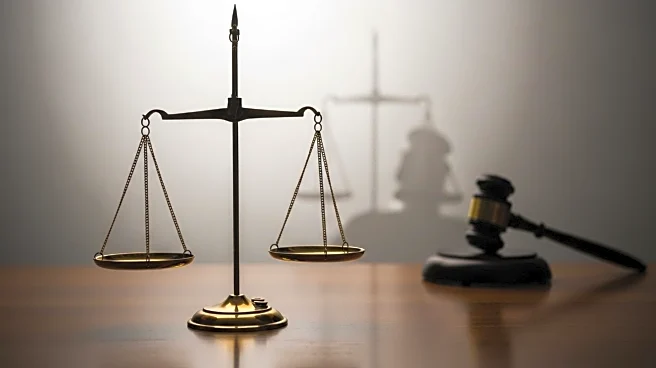What is the story about?
What's Happening?
A top prosecutor in Virginia, Elizabeth Yusi, has decided not to seek charges against New York Attorney General Letitia James, despite pressure from President Trump. Yusi, overseeing major criminal prosecutions in the Eastern District of Virginia, found no probable cause for mortgage fraud allegations against James. Trump had appointed Lindsey Halligan as interim U.S. attorney after firing Erik Siebert, who resisted charging James. Halligan, lacking prosecutorial experience, indicted former FBI Director James Comey on charges considered weak by Siebert. Trump has publicly called for James's prosecution, but career prosecutors concluded they cannot prove she lied on a mortgage application.
Why It's Important?
This development highlights the tension between political influence and judicial independence within the U.S. legal system. The refusal to charge Letitia James despite presidential pressure underscores the importance of maintaining prosecutorial integrity and the rule of law. It also reflects the challenges faced by legal professionals in navigating politically charged cases, where decisions can have significant implications for their careers and the broader justice system. The situation raises concerns about the politicization of legal processes and the potential impact on public trust in the judiciary.
What's Next?
Elizabeth Yusi plans to present her findings to Lindsey Halligan, the interim U.S. attorney, in the coming weeks. The decision not to pursue charges against James may lead to further scrutiny of the Eastern District of Virginia's prosecutorial practices and potential repercussions for Yusi. The case could also prompt discussions on the need for safeguards to protect legal professionals from political interference. Stakeholders, including legal experts and civil rights advocates, may call for reforms to ensure the independence of the judiciary and uphold the principles of justice.
Beyond the Headlines
The case illustrates the ethical dilemmas faced by prosecutors in politically sensitive cases, where they must balance legal obligations with external pressures. It also highlights the broader implications of political interference in the justice system, which can undermine public confidence and the perception of fairness. The situation may lead to increased advocacy for judicial reforms and measures to protect the integrity of legal processes from political influence.
















